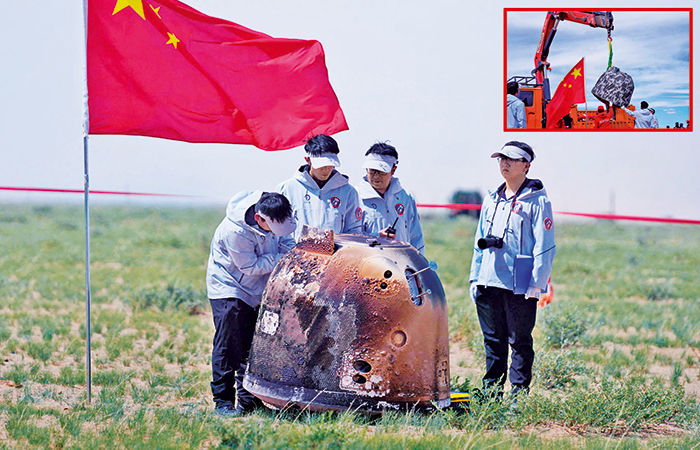
Beijing: China's Chang'e-6 lunar mission module successfully returned to Earth from the dark side of the moon on Tuesday carrying two kilograms of lunar rock samples. China has become the first country in the world to collect lunar rock samples from the dark side of the moon. Chinese President Xi Jinping also congratulated the scientists who made this lunar mission a success.
So far, only China has been successful in landing on the dark side of the Moon. Earlier in 2019, its mission also landed on the dark side of the Moon. This dark side of the Moon is always farther from the Earth and its surface is more rocky, making landing there more challenging.
According to the announcement made by the China National Space Administration-CNSA- this capsule returned from the moon successfully landed in the Xizhiwang Banner region of Mongolia in northern China at 2:70 pm Beijing time. The mission was a complete success. This module has been sent to Beijing for inauguration. A team of scientists will be tasked with collecting, analyzing and studying these rocks brought back from the moon. The Chang'e-6 mission is believed to have brought back about two kilograms of lunar rocks and rocks from the dark side of the moon. After the rocks are first analyzed by Chinese scientists, they will be presented to international scientists.
The main four parts of the Chang'e-6 mission launched on May 3 this year included an orbiter, a returner, a lander, and an ascender. A second lander-ascender landed in the South Pole Aitken SPA crater region on the dark side of the moon and collected samples of lunar rocks. On the fourth day, the ascender entered lunar orbit, carrying samples of lunar rocks. The lunar rocks that the orbiter successfully docked with the returner were transferred to the returner. Then, after thirteen days in the moon's orbital path, waiting for the right opportunity, the returner swiftly returned to Earth.
Yang Wei, a researcher at the Institute of Geology and Geophysics at the Chinese Academy of Sciences, said the success of the Chang'e-6 mission is a milestone in the human history of lunar exploration. This mission will greatly help gain a deeper understanding of the evolution of the moon. Analyzing new samples of lunar rocks will lead to new discoveries. International scientists have also been previously requested to analyze lunar rocks recovered from lunar soil by the Chang'e-5 mission. According to Chinese scientists, the analysis has found water in dust particles present in small lunar particles. China has announced plans to land astronauts on the moon and expand its space station by the late 2030s.
 look news india
look news india

